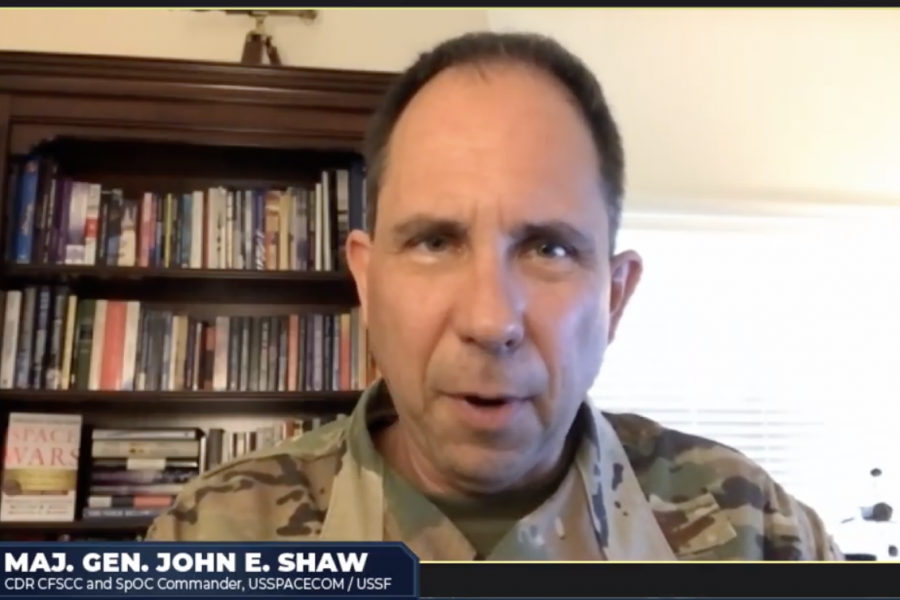Military troops in the Space Force will someday deploy to orbit, one of the service’s top operations officials said Sept. 29.
“At some point, yes, we will be putting humans into space,” Maj. Gen. John E. Shaw, head of the Space Force’s Space Operations Command and part of U.S. Space Command leadership, said during a conference organized by the AFWERX innovation group. “They may be operating command centers somewhere in the lunar environment or someplace else.”
Space Force officials, wary of being confused with NASA, usually shy away from questions about whether military personnel will go to the Final Frontier themselves. Experts have split on whether a Space Force astronaut corps is a good idea in the next couple of decades, if at all.
“For us, it remains focused on our commanders in the field. So that’s why we’ve gone there—not because we’re battling for control of the moon or Mars, but because we have to ensure space capabilities are there for the folks on the ground,” Space Force Vice Commander Lt. Gen. David D. Thompson said in February. “That opportunity to be an astronaut inside the Space Force today is almost zero.”
SpaceX’s successful launch of two NASA astronauts from U.S. soil to the International Space Station—and their subsequent return—earlier this year prompted new questions about how the civilian and military agencies may work together on future space ventures, and what role private space launch firms could have in taking military personnel to space.
The Space Force currently handles rocket launch ranges in Florida and California, watches for ballistic missile shots around the globe, and manages the Global Positioning System constellation and other daily satellite operations. It was created to focus on beating out China and Russia as the dominant space power and to deter aggression, not to fight aliens or build a Death Star.
It is plausible that, in a future where NASA and commercial industry have set up shop on the moon, the Space Force could be nearby to protect people and hardware. Some see the Space Force becoming a sort of celestial Coast Guard for search-and-rescue missions. Others say the newest branch of the military doesn’t need to put people in space for routine operations or to mount an effective offense or defense.
While humans regularly head to and from the International Space Station, and multiple countries are planning to establish a lasting presence on the moon, “space isn’t all that habitable for humans,” Shaw said. “We’ve learned that since our early space days.”
Military facilities in space may be partially autonomous, so humans wouldn’t need to man them around the clock in person, he added. The Space Force wants its satellites to gradually be able to manage themselves, including automatic software upgrades or maneuvers if threatened.
“The best robots that humans have ever created are probably satellites. … They’re incredible machines, and we’re only getting better,” Shaw said. “With machine learning and artificial intelligence, we’re going to have an awful lot of automated and autonomous systems operating [on] Earth and lunar orbit and solar orbit in the days and years to come, doing national security space activity.”
But don’t expect Space Force personnel to leave Earth anytime soon: it will happen at some point, Shaw said, but when is “anybody’s guess.”
